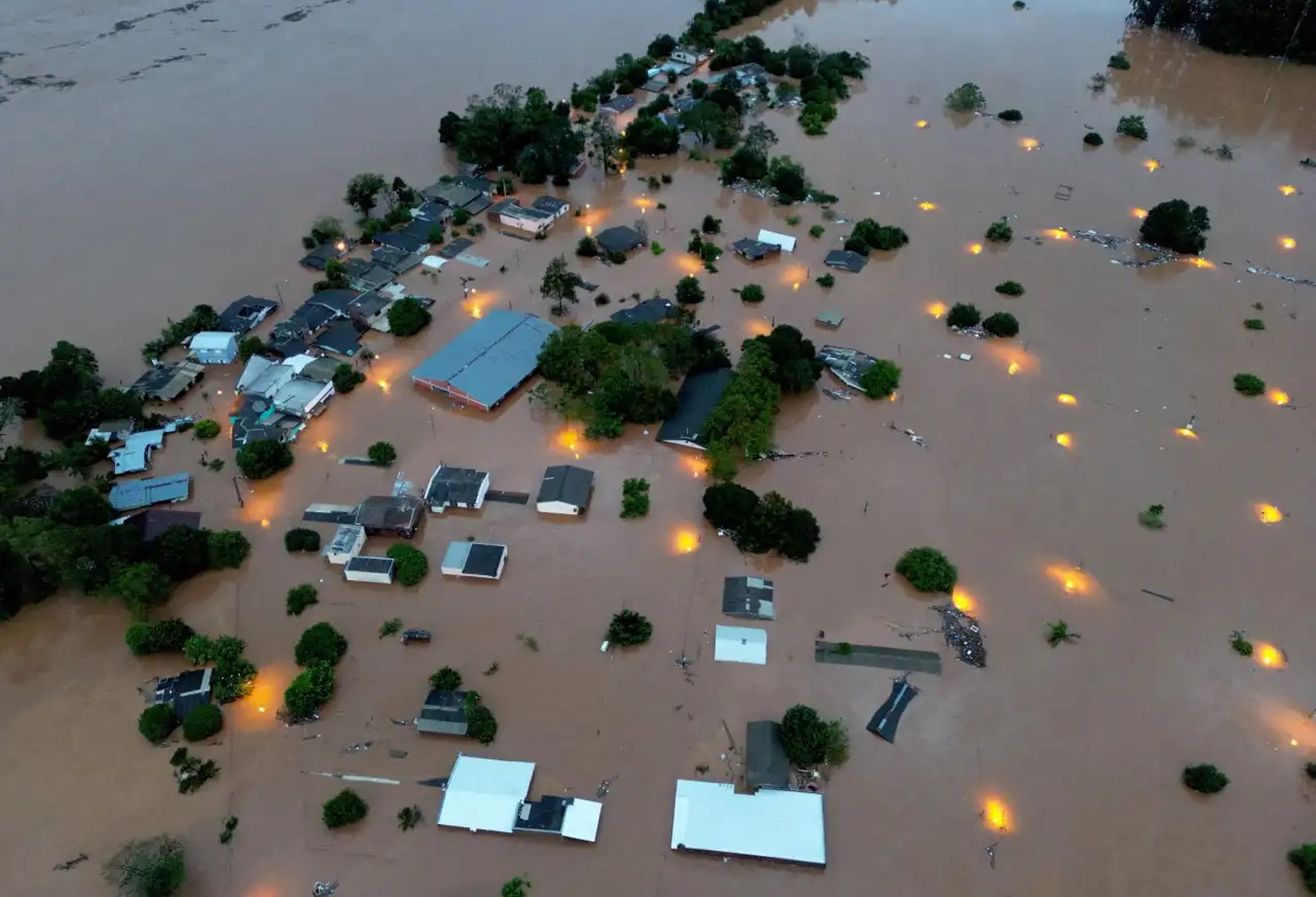Brazil’s southernmost state, Rio Grande do Sul, has been severely affected by the heaviest rainfall in eight decades. The storms have caused significant flooding, numerous fatalities, and the displacement of thousands of families. The state’s central regions were the most affected, with weather stations reporting between 50 and 100 cm of rain since last April 29.
The rains that have hit the area have left 85 dead, 134 missing and 155 injured. Another four deaths are under investigation. 385 of the state’s 497 municipalities have had some kind of problem, affecting 1.178 million people. 201,500 people are homeless – 47,600 in shelters and 153,800 displaced in the homes of relatives or friends, according to state authorities.
Rio Grande do Sul has declared a state of emergency, allowing the state to request federal funds for civil defense actions, such as humanitarian assistance, rebuilding infrastructure and restoring essential services.
In the capital, Porto Alegre, the main access and exit routes are blocked. In addition, the Salgado Filho international airport is closed indefinitely, as is the Porto Alegre bus station.
The floods and landslides have caused extensive damage to homes and infrastructure, including the partial collapse of a small hydroelectric dam that resulted in a two-meter-high wave.
Looting of stores, threats to rescuers and attacks on rescue boats, including one carrying military police officers, have added a component of insecurity to the already dramatic situation of those affected by the floods. The State Security Secretariat announced that the Military Brigade’s Special Operations Battalion (Bope), a unit dedicated to strategic actions, will take over patrols to curb the actions of bandits.
Despite the region’s history of heavy rainfall, this event has been particularly destructive. Experts believe the increased rain is due to a combination of global warming and the recent El Niño phenomenon, which causes the eastern Pacific Ocean to warm up.
President Luiz Inácio Lula da Silva has promised that the federal government will make every effort to rebuild the state of Rio Grande do Sul. The president has visited the region twice last week to assess the situation.
During a press conference, Lula announced that the federal government would assist in restoring roads and resuming economic activities. He assured the governor of Rio Grande do Sul, Eduardo Leite, that the Ministry of Transportation will help restore the state’s roads. In addition, the government’s social and environmental areas will work on plans ranging from job recovery and back-to-school to preventing new climate disasters.
Lula also emphasized the importance of not allowing people to rebuild houses in the same places where they were destroyed. He asked the municipalities, the state, and the union to locate safer land so people could rebuild their homes. Lula guaranteed that there would be no bureaucratic obstacles to the reconstruction process and that resources would be guaranteed for the actions needed to rebuild the cities.
The federal government has decided to anticipate the release of 580 million reais (US$ 114 million) in parliamentary amendments earmarked for 448 cities in Rio Grande do Sul. Of the total, 538 million reais (US$ 106) should be earmarked for public health actions. The money was supposed to be released starting Monday, May 6.
Cities in a severe situation
The Rio Grande do Sul cities of Canoas and Eldorado do Sul are facing a catastrophic situation due to flooding. Canoas, a city neighboring Porto Alegre, estimates that around 200,000 people are affected by the floods. With more than 50,000 people living in risk areas, the city council on Saturday advised the population of the entire west side of the city to leave their homes and seek shelter in higher, safer places in the municipality.
On Saturday night residents formed a human cordon to help tow a speedboat and a boat with several people in the Mathias Velho neighborhood. Eldorado do Sul also suffers from floods, with over 90% of the city underwater and 95% of residents affected.
Environmental Code
In the first year of his term, in 2019, Governor Eduardo Leite made significant changes to Rio Grande do Sul’s Environmental Code, modifying or removing almost 500 points from the state’s environmental legislation. The Code, which took nine years between debates, hearings, and improvements, was run over by Leite’s government.
The changes, which aimed to make requirements more flexible and favor business people, were criticized by environmentalists, who considered them a step backward in environmental protection. In some cases, the changes allowed for self-licensing. The discussion was conducted so quickly that it didn’t go through the Assembly’s Health and Environment Committee.
Leite passed his proposal with 37 votes in 2019. Only 11 deputies, all aligned with the left or center-left, voted against it. The governor immediately expressed his gratitude to his supporters: “I want to congratulate the 37 deputies who voted to reform our Environmental Code so that we can, by protecting the environment, put the state on the growth path,” Leite said.




